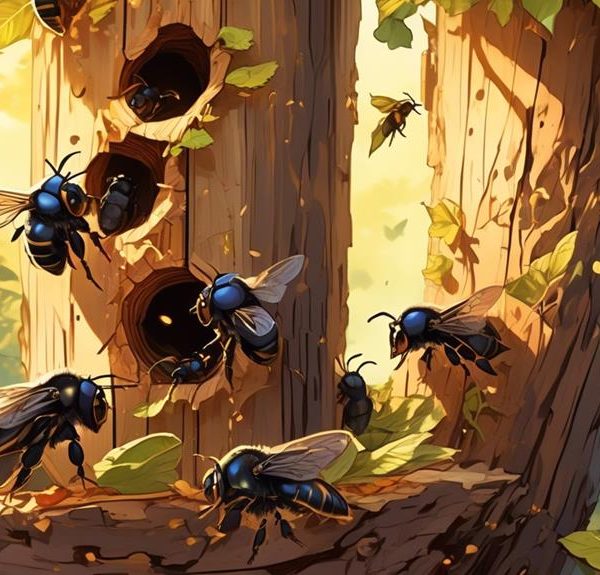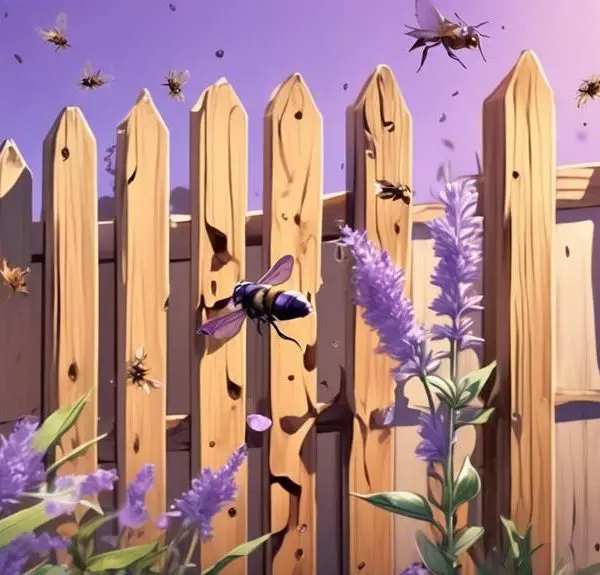An intricate look at Carpenter Bees in Cape Verde, revealing their pivotal role and the hidden threats they face in biodiversity hotspots.
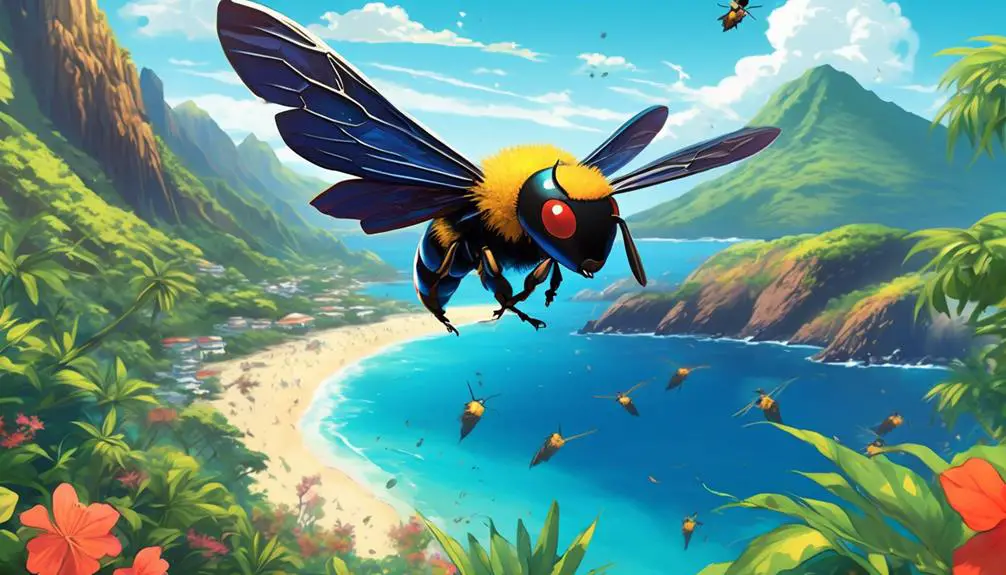
Carpenter Bee Cape Verde
While it's true that the Carpenter Bee in Cape Verde has been labeled as a bit of a nuisance, there's more to this industrious insect than meets the eye.
You might be surprised to learn about the critical role they play in our ecosystem, particularly in the biodiversity hotspots of Cape Verde. Although these creatures are known for their habit of burrowing into wood, they also play a key role in pollination.
But there's an underlying issue that you may not be aware of, one that could have a significant impact on our environment.
Stay tuned to find out more.
Key Takeaways
- Carpenter Bees in Cape Verde belong to the genus Xylocopa.
- Carpenter Bees in Cape Verde build nests by burrowing into dead wood or plant stems.
- Carpenter Bees have stiff hairs on their hind legs called scopae, which hold pollen grains.
- Carpenter Bees in Cape Verde help maintain biodiversity by pollinating a wide range of plants.
Understanding Carpenter Bees
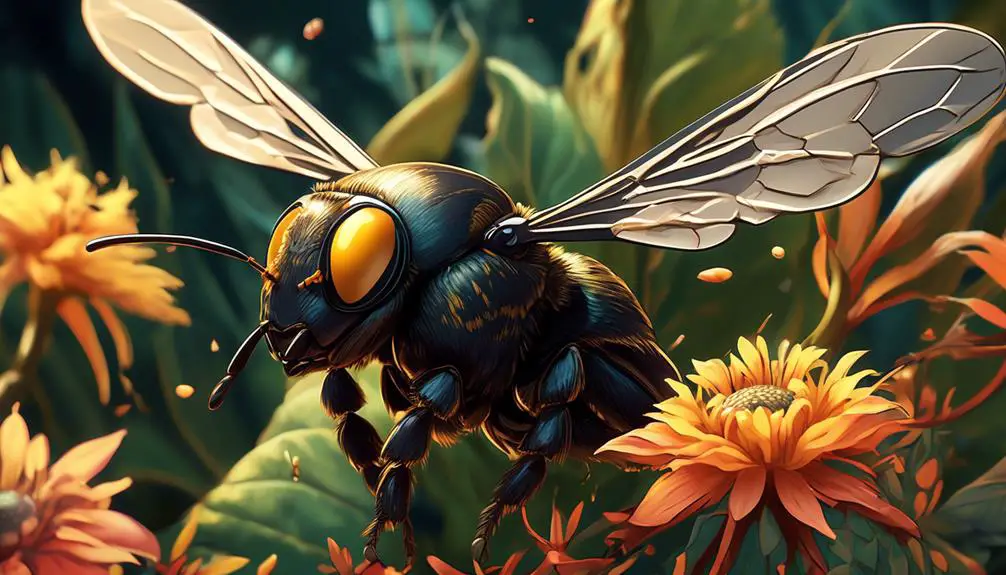
To truly grasp the nature of the Carpenter Bee's role in Cape Verde, it's crucial to first understand their unique biology and behavior. Unlike your typical honeybees, Carpenter Bees are solitary creatures, meaning they don't live in colonies. Instead, you'll find them nesting in dead wood or bamboo, where they drill holes to lay their eggs.
What's fascinating about these bees is their size. They're larger than most bee species, with robust bodies that are either metallic blue or green, or black. They're also known for their remarkable agility in air, capable of hovering in place or changing direction swiftly. Unlike honeybees, both male and female Carpenter bees can sting, but they're generally not aggressive unless provoked.
In terms of their role in the ecosystem, Carpenter Bees are important pollinators. They engage in a behavior called 'buzz pollination,' where they vibrate their bodies at high frequency to dislodge pollen. This method is especially effective with flowers that have tightly packed pollen. By understanding their biology, you can better appreciate their impact on Cape Verde's ecosystem.
Carpenter Bee's Role in Ecosystem
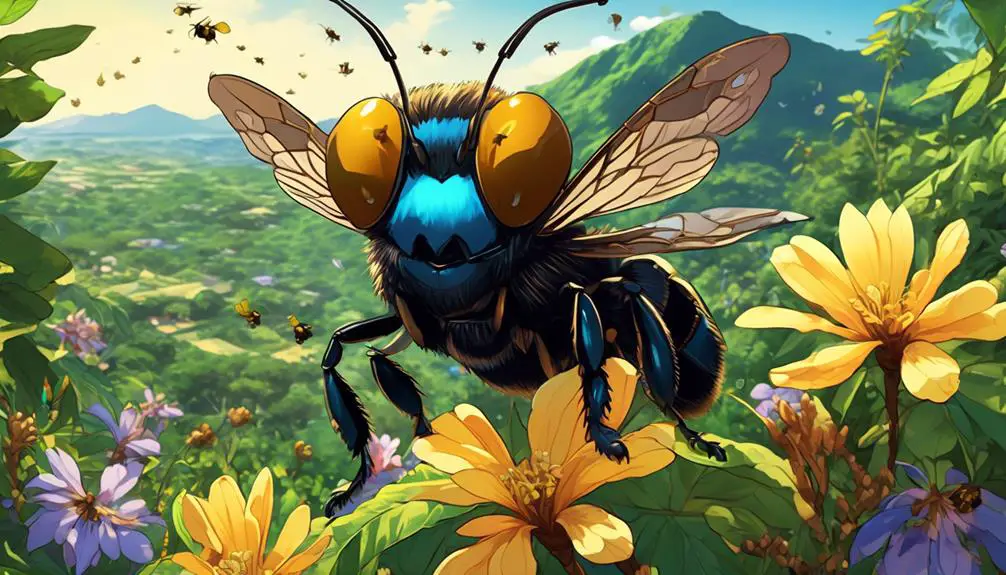
As a critical player in Cape Verde's ecosystem, the Carpenter Bee's role can't be underestimated, particularly when it comes to pollination. You see, these bees aren't simply buzzing around for their health. Their activities have direct, tangible impacts on the environment.
They're essential pollinators, transferring pollen from the male parts of flowers to the female ones. This pollination plays a key role in the reproduction of many plant species. Without the Carpenter Bee's work, a significant number of plants in Cape Verde would struggle to reproduce, compromising the health and diversity of the island's flora.
Moreover, Carpenter Bees' nesting behavior also contributes to the ecosystem. They bore into wood to create nests, which in turn provide habitats for other insects and small animals. They play a role in the decomposition of wood, further enriching the soil.
However, their population is declining due to habitat loss, pesticides, and climate change, which could have profound effects on Cape Verde's ecosystem. Therefore, it's crucial to conserve these bees to maintain environmental balance.
It's clear that the Carpenter Bee isn't just another insect, but an ecological pillar in Cape Verde.
Carpenter Bees in Cape Verde
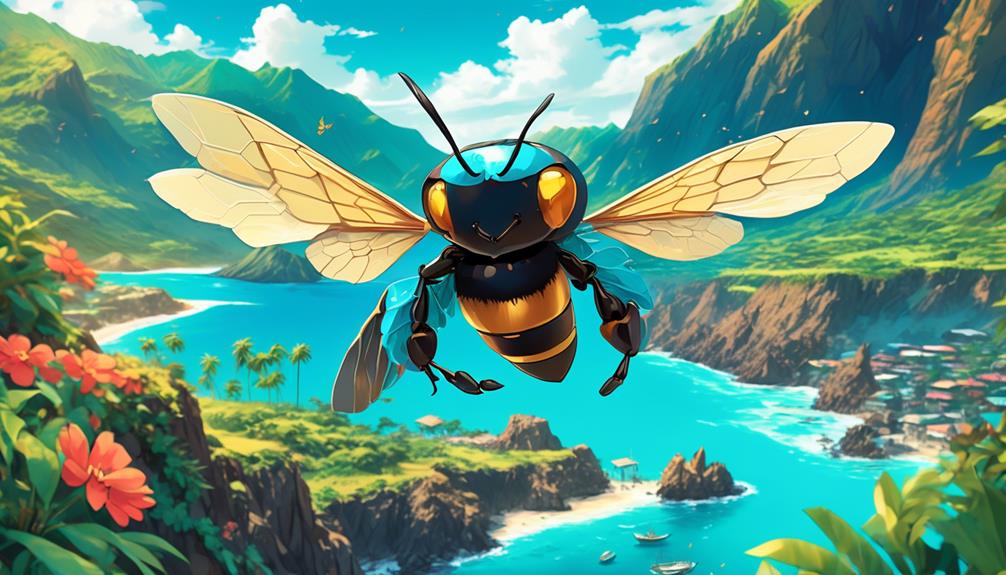
In Cape Verde, you'll find Carpenter Bees buzzing around, their black, shiny bodies a common sight in the island's diverse ecosystem. These bees, belonging to the genus Xylocopa, are named for their behavior of burrowing into dead wood or plant stems to build nests.
You'll observe that Carpenter Bees have a peculiar way of pollinating. Unlike honey bees that collect pollen in 'baskets' on their legs, Carpenter Bees have stiff hairs on their hind legs called scopae, which hold pollen grains. They're not as efficient as honey bees in transporting pollen but they're vitally important for native plant pollination.
Carpenter Bees in Cape Verde are known for their solitary nature. Unlike social bees that live in colonies, each female Carpenter Bee creates her own nest. She'll lay her eggs in the burrow, provide them with a food source of pollen and nectar, and then seal off the chamber.
Their ability to pollinate and their solitary lifestyle have an immense impact on Cape Verde's ecosystem. They help in maintaining biodiversity by pollinating a wide range of plants. Thus, Carpenter Bees in Cape Verde are crucial for the health and balance of the island's environment.
Threats to Carpenter Bee Population
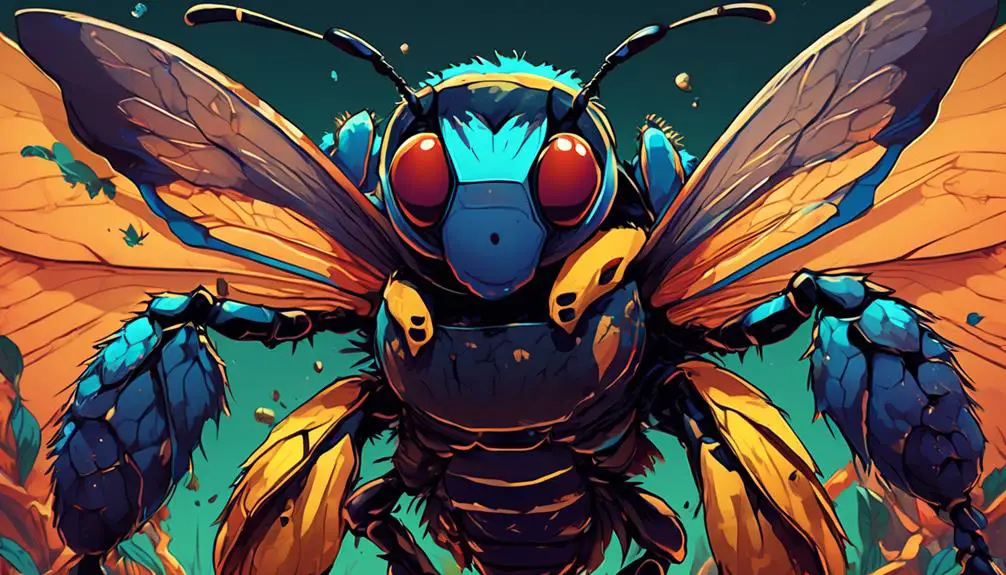
Despite their vital role in Cape Verde's ecosystem, Carpenter Bees face several threats that have the potential to drastically diminish their population. You must understand that these bees are especially vulnerable to habitat loss, mainly due to urbanization and deforestation. As humans continue to expand their settlements, the natural habitats of bees shrink, leaving them with fewer resources and space to thrive.
Furthermore, you'll find that the excessive use of pesticides on agricultural crops is another significant threat to these bees. Pesticides, particularly neonicotinoids, have been linked to declines in bee populations worldwide. These chemicals not only kill bees directly but can also impair their ability to navigate, reproduce, and resist disease.
Lastly, climate change presents a looming danger. Changes in temperature and precipitation patterns can disrupt the lifecycle of bees, affecting their breeding and foraging behavior. Moreover, the increase in extreme weather events, such as droughts and heatwaves, can lead to massive bee die-offs.
Conservation Efforts for Carpenter Bees
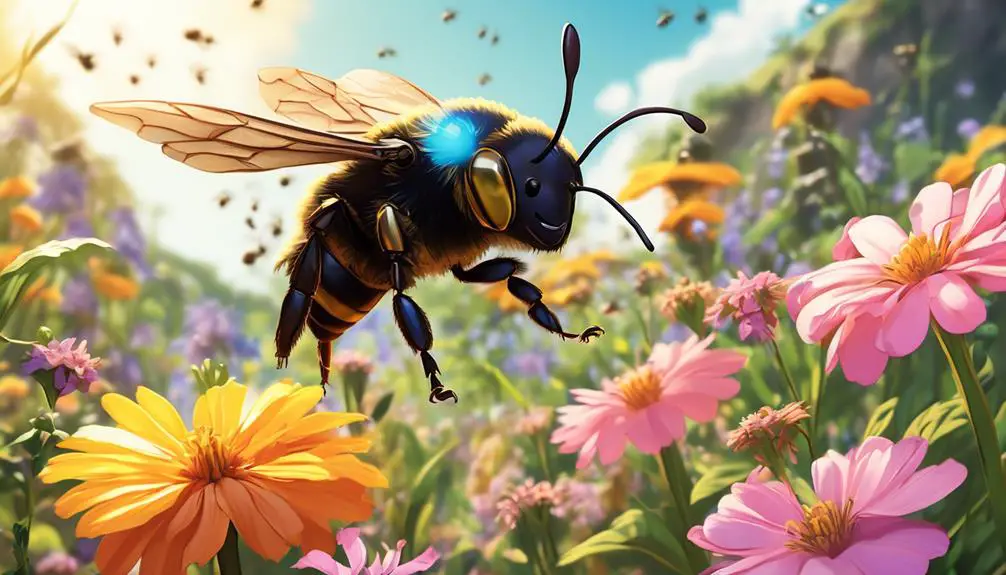
To mitigate the risks faced by Carpenter Bees in Cape Verde, several conservation efforts are actively being implemented. Dedicated environmental groups are working tirelessly to educate local communities about the importance of these bees. You'll find them conducting workshops and seminars, explaining the pivotal role Carpenter Bees play in pollination and the ecosystem's health.
Additionally, habitat preservation is high on the agenda. By protecting the bees' natural habitats from deforestation and urbanization, they're ensuring the bees have safe nesting sites. Efforts are also being made to limit the use of harmful pesticides that can decimate bee populations.
Conservationists are also exploring captive breeding programs. By raising Carpenter Bees in a controlled environment, they're able to increase the population and later reintroduce them back into the wild.
Lastly, there's a push for legal protections for these bees. Advocacy groups are lobbying for laws that will regulate activities harmful to the bees and enforce penalties for violations.
Conclusion
In conclusion, you've seen how crucial carpenter bees are to Cape Verde's ecosystem. Yet, they're under threat from habitat loss and pesticides.
It's urgent to bolster conservation efforts to protect these pollinators. Remember, every small action counts. By understanding their role and threats, you're taking the first step towards their preservation.
Let's work together to ensure the survival of carpenter bees, and in turn, Cape Verde's biodiversity.

